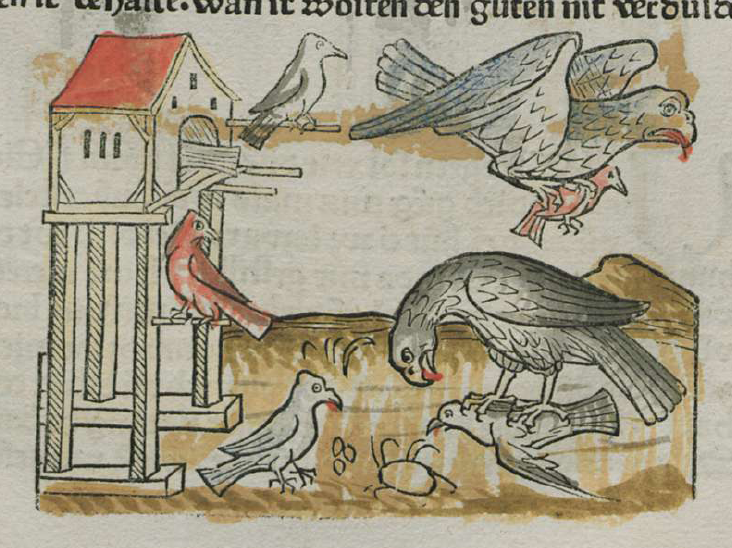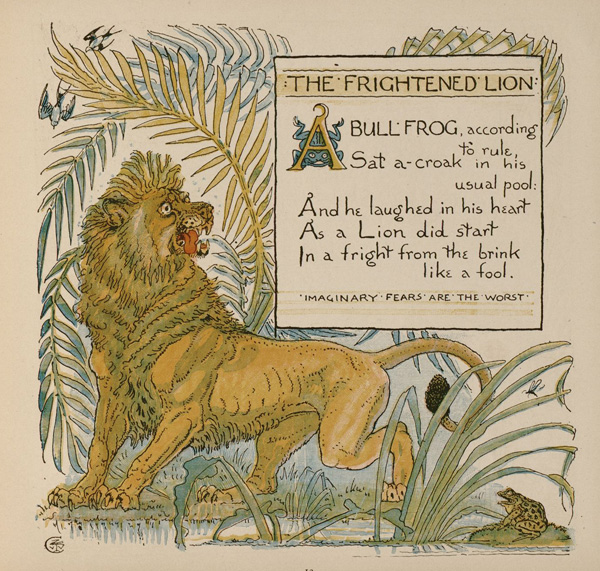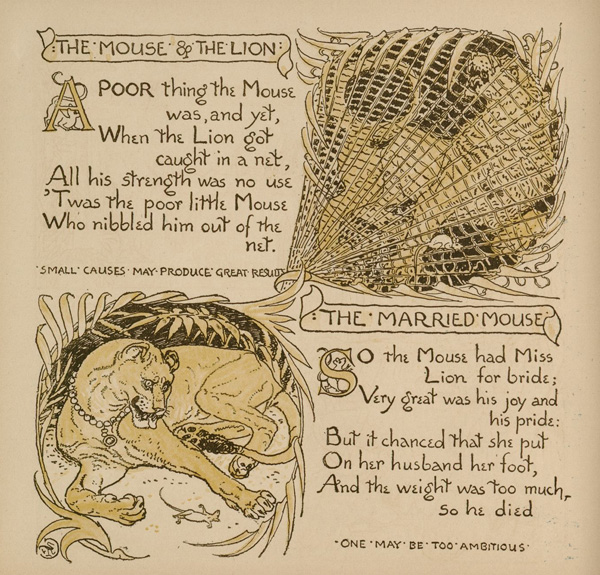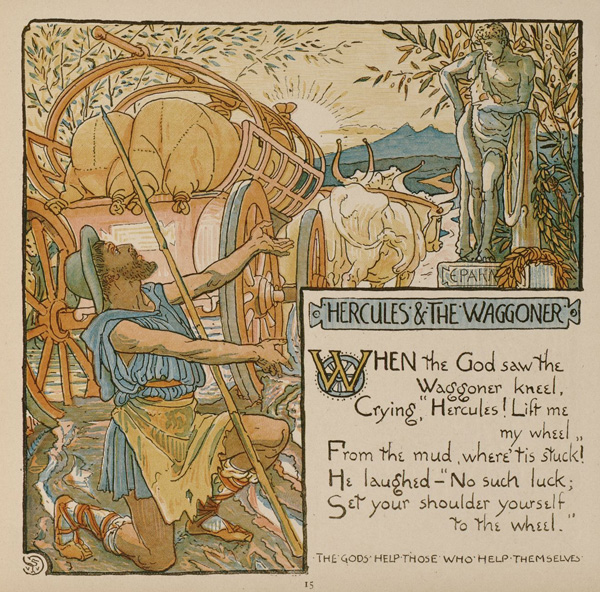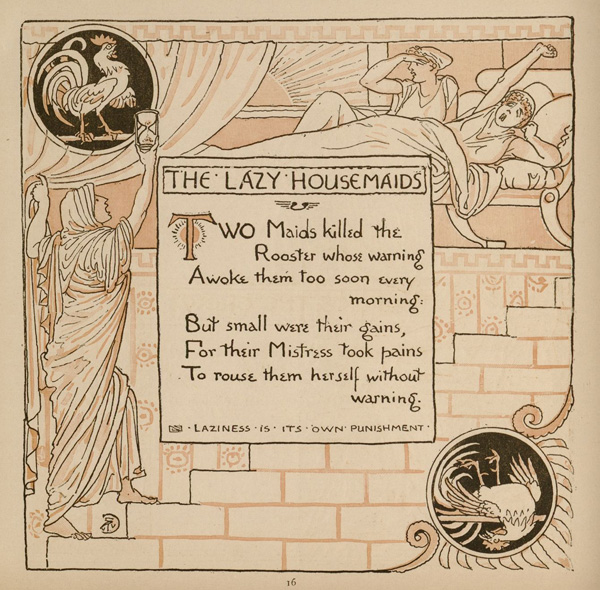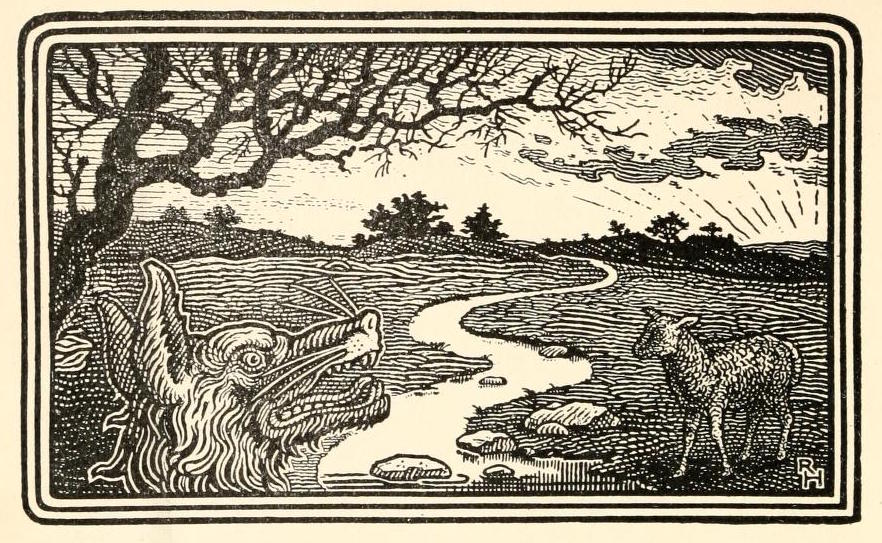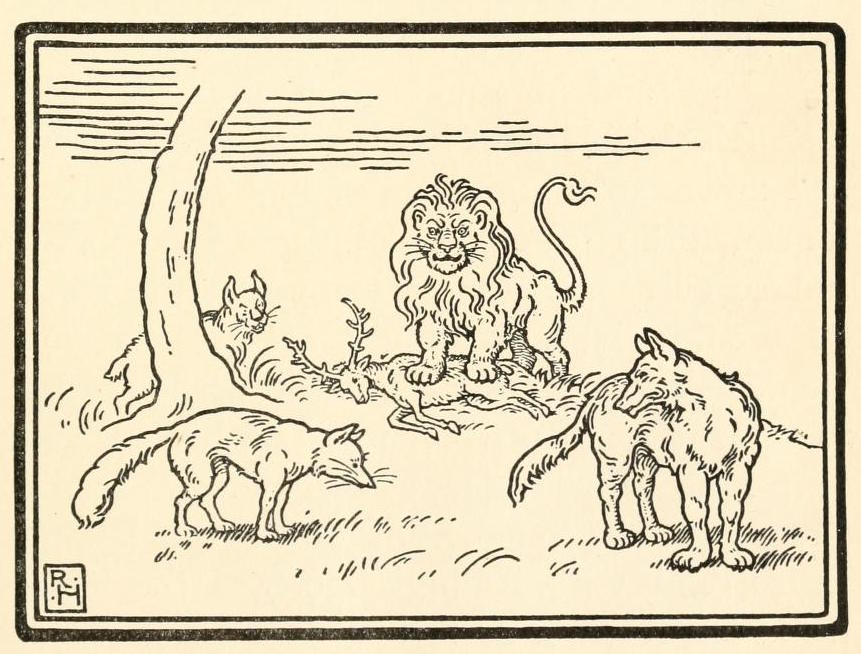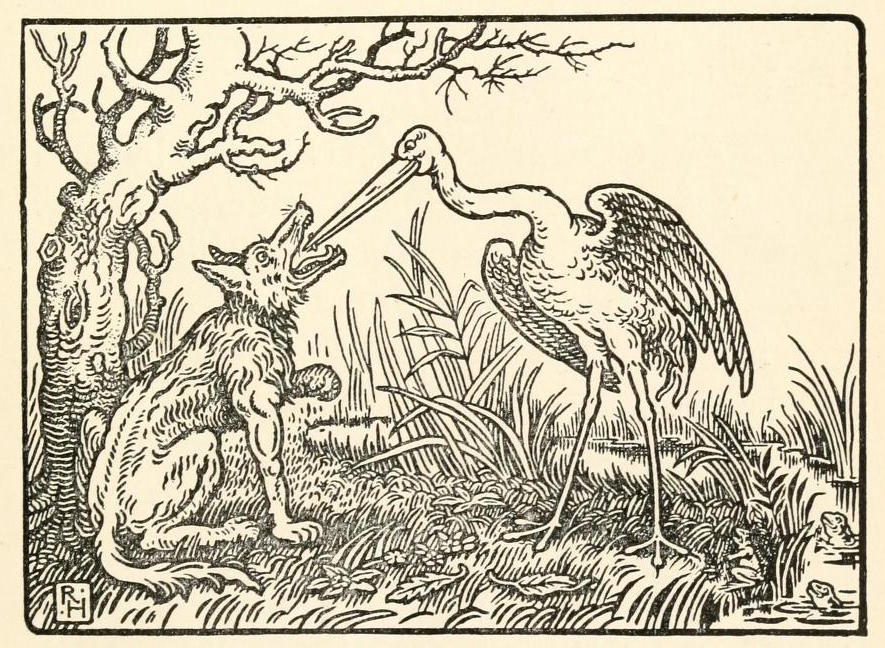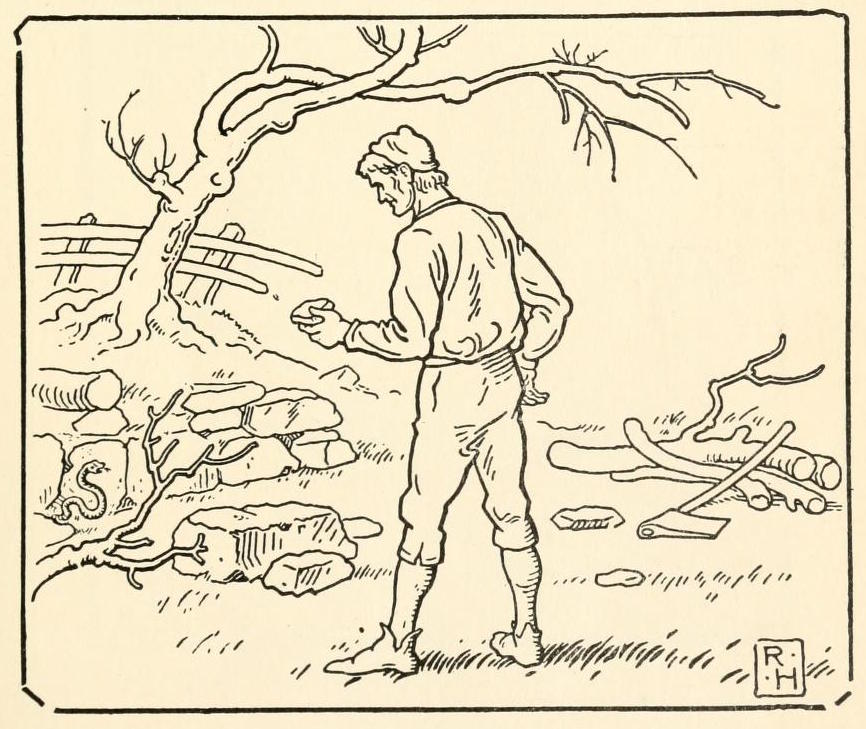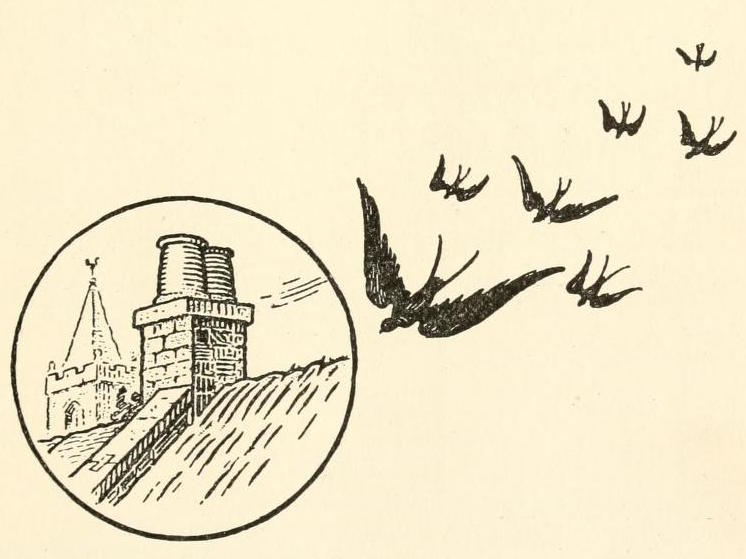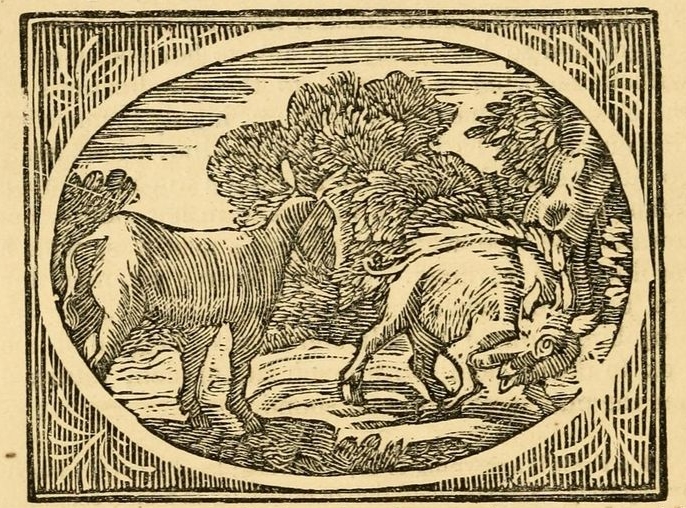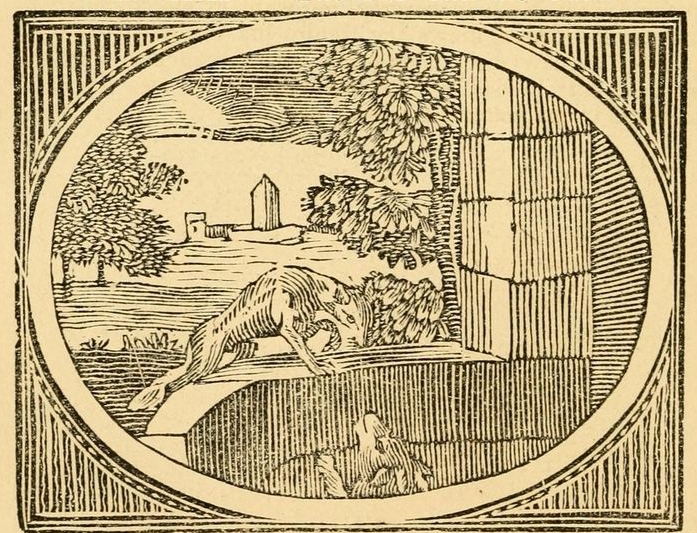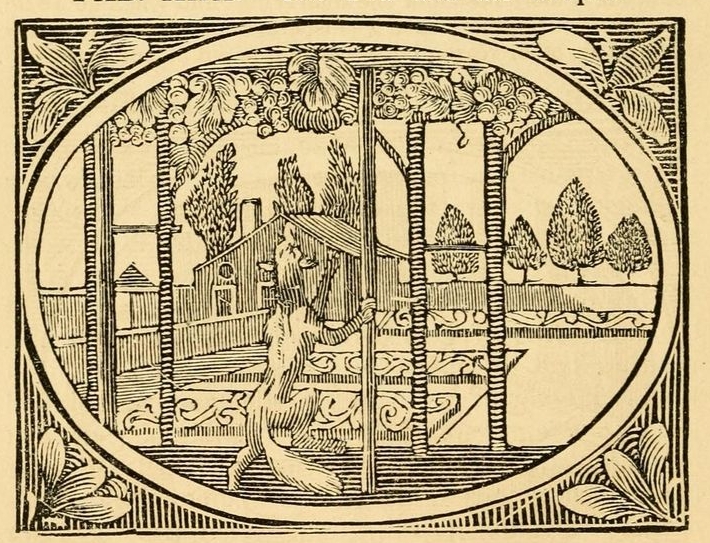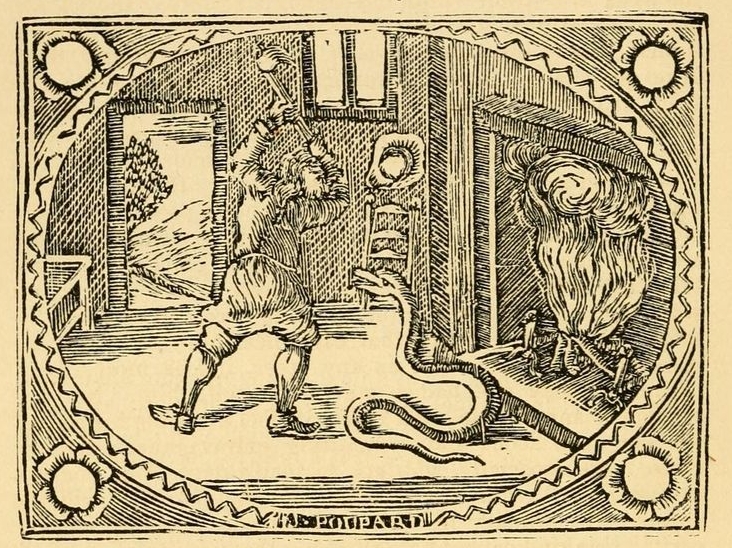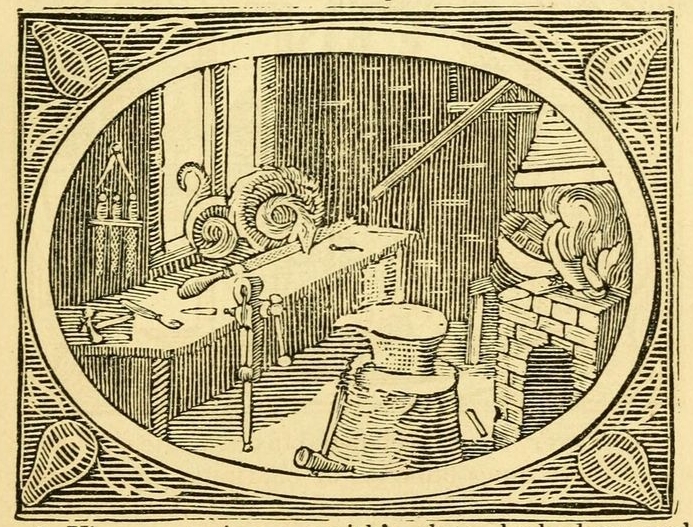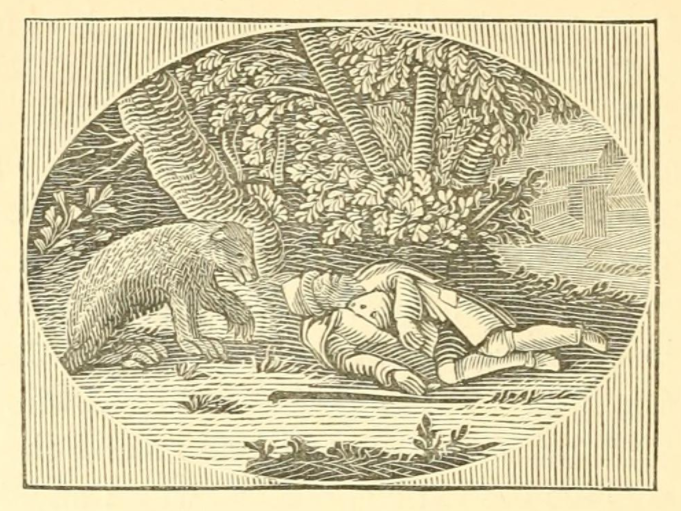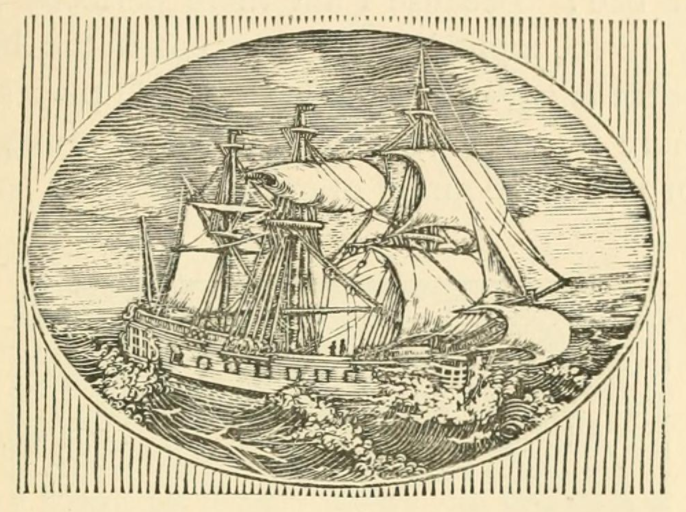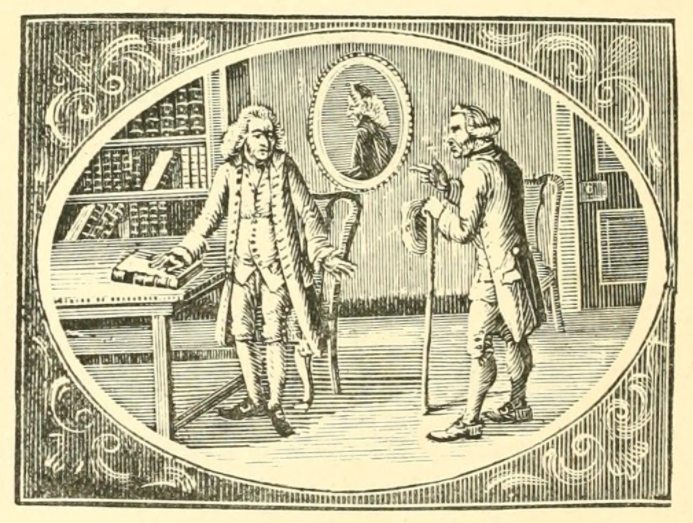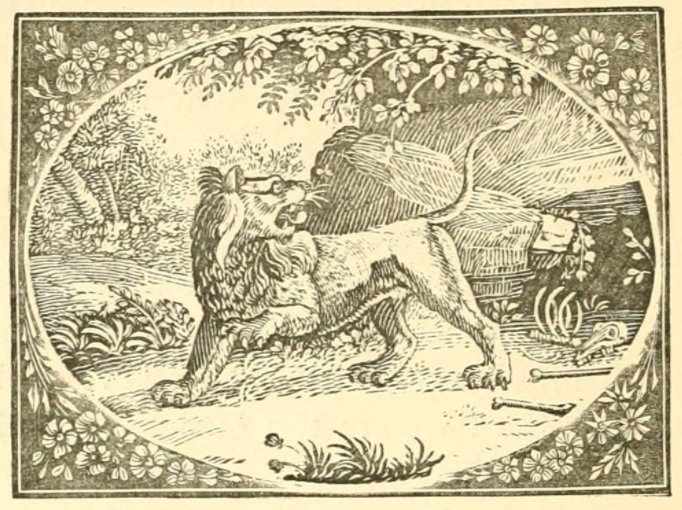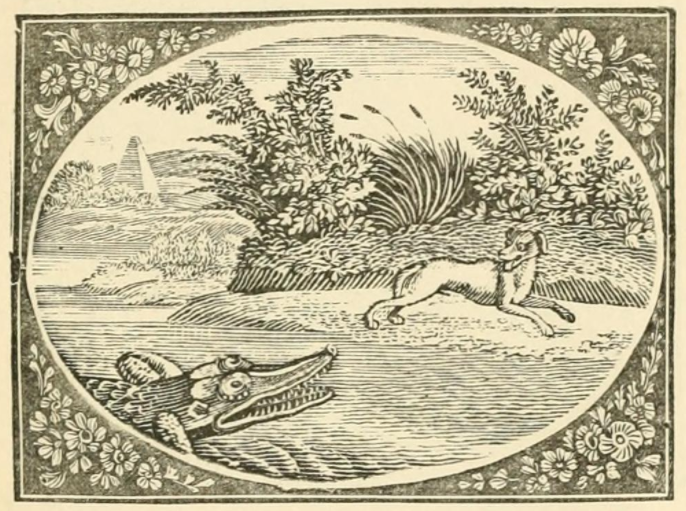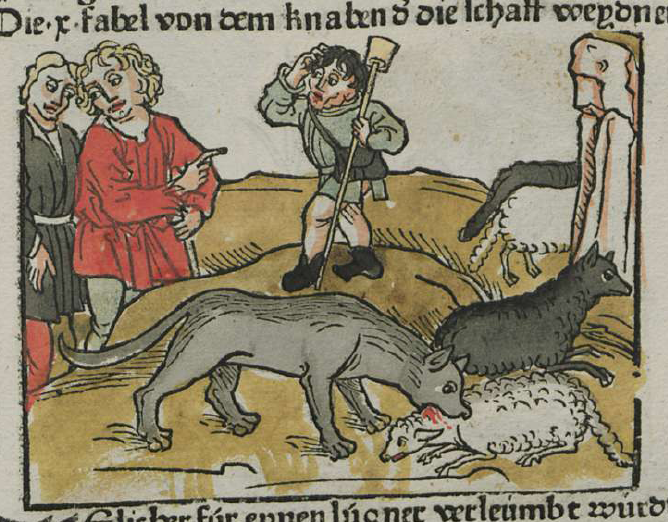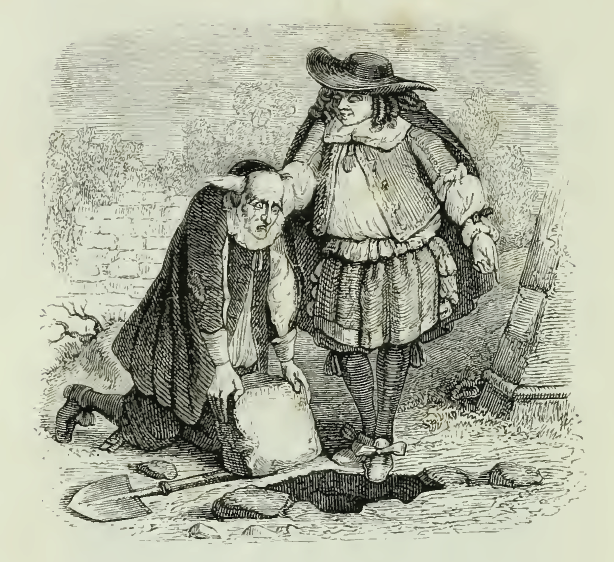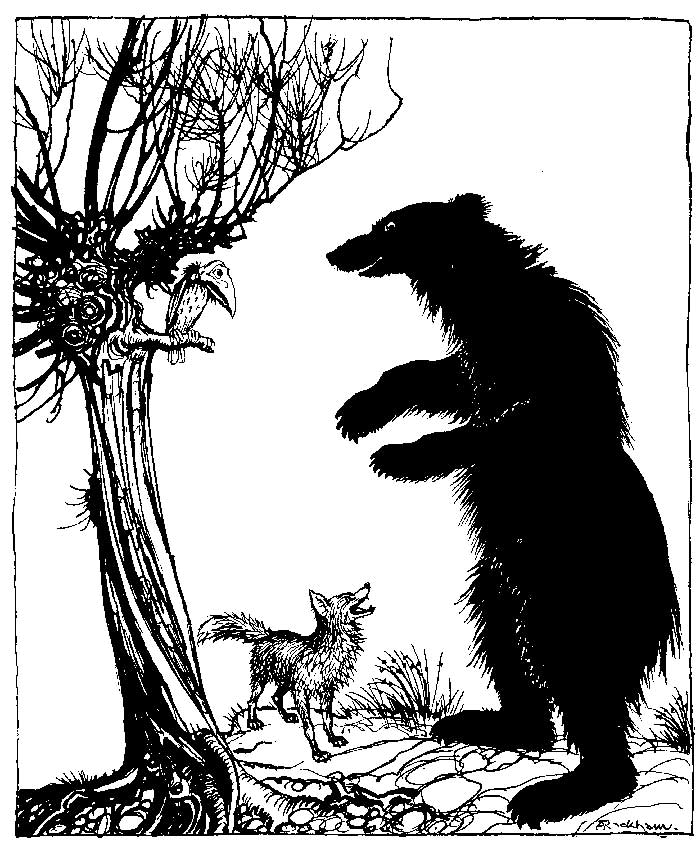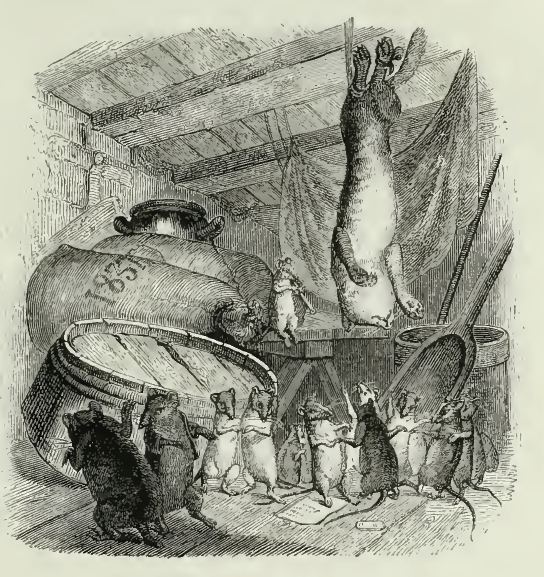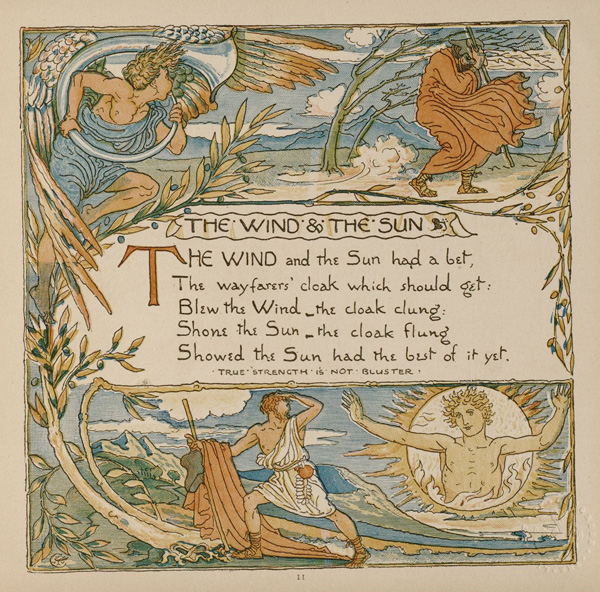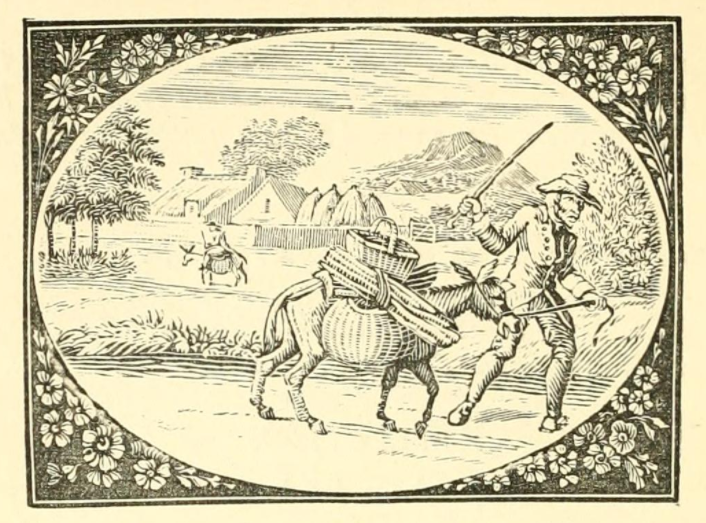Of the wulf and of the lambe
Of the Innocent and of the shrewe Esope reherceth to vs suche a fable / how it was so / that the lambe and the wulf had bothe thurst / and went bothe to a Ryuer for to drynke / It happed that the wulf dranke aboue & the lambe dranke bynethe / And as the wulf sawe and perceyued the lambe / he sayd with a hyghe voys / Ha knaue why hast thou troubled and fowled my water / whiche I shold now drynke / Allas my lord sauf your grece / For the water cometh fro yow toward me / Thenne sayd the wulf to the lambe / Hast thow no shame ne drede to curse me / And the lambe sayd My lord with your leue / And the wulf sayd ageyne / Hit is not syxe monethes passyd that thy fader dyd to me as moche / And the lambe ansuerd yet was I not at that tyme born / And the wlf said ageyne to hym / Thou hast ete my fader / And the lambe ansuerd / I haue no teeth / Thenne said the wulf / thou arte wel lyke thy fader / and for his synne & mysded thow shalt deye / The wulf thenne toke the lambe and ete hym /
This fable sheweth that the euylle man retcheth not by what maner he may robbe & destroye the good & innocent man
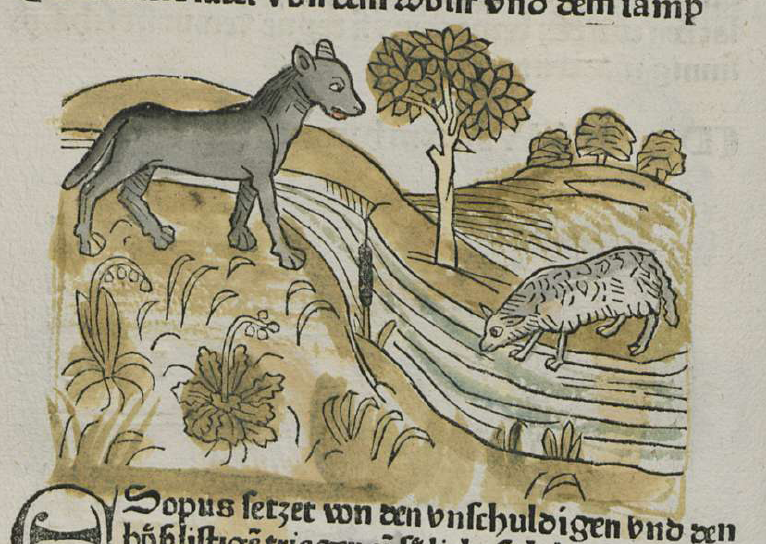
Of the rat / and of the frogge
Now it be so / that as the rat wente in pylgremage / he came by a Ryuer / and demaunded helpe of a frogge for to passe / and go ouer the water / And thenne the frogge bound the rats foote to her foote / and thus swymed vnto the myddes ouer the Ryuer / And as they were there the frogge stood stylle / to thende that the rat shold be drowned / And in the meane whyle came a kyte vpon them / and bothe bare them with hym / This fable made Esope for a symylytude whiche is prouffitable to many folkes / For he that thynketh euylle ageynst good / the euylle whiche he thynketh shall ones falle vpon hym self /
This fable made Esope for a symylytude whiche is prouffitable to many folkes / For he that thynketh euylle ageynst good / the euylle whiche he thynketh shall ones falle vpon hym self
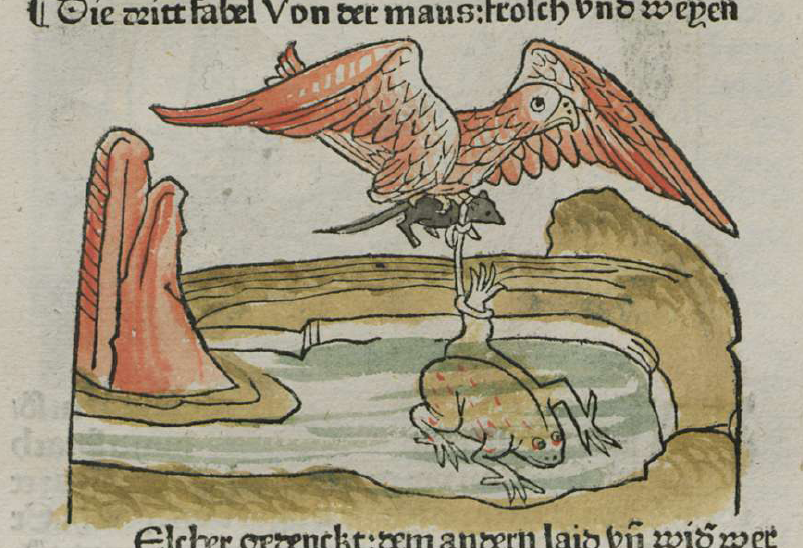
Of the lyon and of the asse
Of them whiche mocken other esope reherceth such a fable / Ther was an asse whiche met with a lyon to whom he said my broder god saue the & the lyon shaked his hede and with grete payne he myght hold his courage / to haue forthwith deuoured hym / But the lyon sayd to hym self / It behoueth not that teethe soo noble and so fayre as myn be touchen not / ne byten suche a fowle beest /
For he that is wyse must not hurte the foole ne take hede to his wordes / but lete hym go for suche as he is
Of the swalowe / and other byrdes
He that byleueth not good counceyll / may not fayll to be euylle counceylled / wherof Esope reherceth to vs suche a fable / of a plowgh man / whiche sowed lynseed / & the swalowe seyng that of the same lynseed men myght make nettes and gynnes / wente and sayd to alle other byrdes / Come with me ye al & lete vs plucke vp al this / For yf we leue hit growe / the labourer shal mowe make therof gynnes and nettes for to take vs al / Alle the byrdes dispraysed his counceyl / And thenne as the swalowe sawe this / he wente and herberowed her in the plough mans hows / And whanne the flaxe was growen and pulled vp / the labourer made grynnes and nettes to take byrdes / wherwith he took euery day many other byrdes / and brought them in to his hows / to the whiche byrdes the swalowe thenne sayd / I told yow wel / what that shold happe therof / wherfore men ought not to disprayse good counceylle /
For he that is euyl aduysed and not wel counceyled shalle haue moche payne
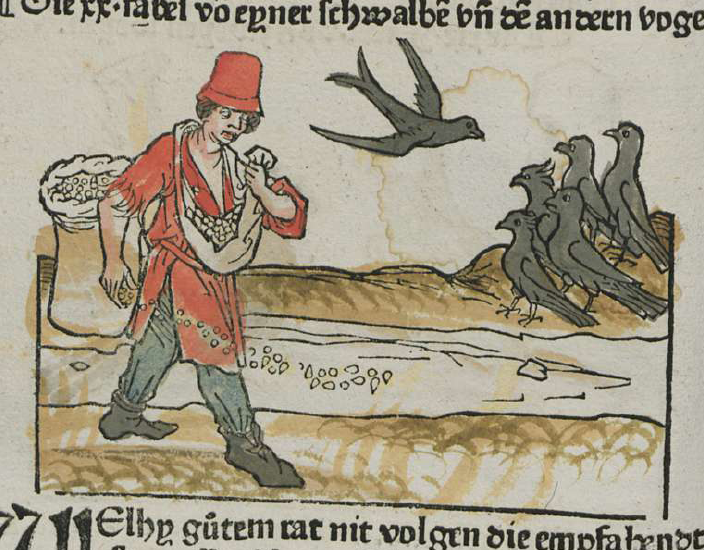
Of the Columbes or douues of the kyte and of the sperehawke
Who that putte and submytteth hym self vnder the saue gard or protection of the euylle / thou oughtest to wete & knowe / that whan he asketh & demaunded ayde & helpe / he geteth none / Wherof Esope reherceth to vs suche a fable / Of the douues whiche demaunded a sperehawke for to be theyr kynge / for to kepe them fro the kyte or mylan / And whanne the sperehawke was maade kynge ouer them / he beganne to deuoure them / the whiche columbes or douues sayd amonge them / that better it were to them to suffre of the kyte than to be vnder the subiection of the sperehawke / & to be martred as we be / but therof we be wel worthy / For we oure self been cause of this meschyef /
And therfore whanne men done ony thyng / men ought well to loke and consydere thende of hit / For he dothe prudently and wysely whiche taketh good hede to the ende
